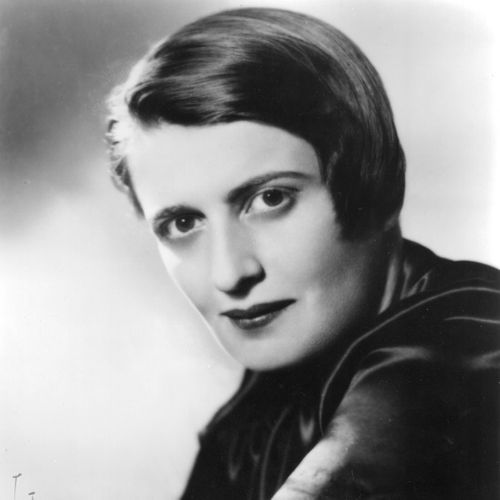Ayn Rand: capitalist philosopher
Feb 07, 2023 · 2 mins read
0
Share
Part 1: Moral basis of capitalism
Academic philosophers HATE her.
Literary critics HATE her.
She wrote popular philosophical novels, and worshipped CAPITALISM.
She loved smoking, the $, and powerful men.
Ayn Rand: woke nightmare.
Save
Share
Father owns a business that is taken over by the Bolsheviks = lifelong hatred of communism.
Travels to Chicago to 'visit' a cousin, never returning.
Moves to Hollywood.
Changes name: Ayn' the name of Finnish writer. 'Rand' the model of her Remington typewriter.
Save
Share
Fails as a screenwriter in Hollywood.
In her mid-30s publishes The Fountainhead (1943), a 700-page story of a modernist architect who battles to realize his vision.
But it's Atlas Shrugged (1957) that cements her place in history.

Save
Share
Heroine Dagny Taggart is a driven railroad executive who tries to run Taggart Transcontinental while fighting off state corruption on a national scale.
There’s ruthless industrialist Hank Rearden, and the flamboyant and aristocratic mining baron Francisco D’Anconia.
Save
Share
The key character is John Galt. He's the greatest living philosopher and inventor.
So why - when he appears at the end of the book - is he working as a short-order COOK in a diner in the Rocky Mountains?
Save
Share
For Ayn Rand, the presence of wealth means that thought has taken place.
To create something and to make money out of it is the essence of morality.
Save
Share
In Atlas Shrugged, the people who advance civilization are sneered at as being “vulgar materialists”, and “robbers of the people”.
Why should Dagny try to save her railway while the "looters" and their public directives in the name of “the public good”, emaciate it?
Save
Share
Atlas Shrugged was written at a time when many intelligent people still believed in socialism.
Rand’s opposing salvo: Wealth creators be proud! Fight for your freedom to innovate and produce, and never accept the guilt of the non-productive.
Save
Share
The $ sign is a sacred symbol representing the triumph of the creative mind over the state, religion and tradition.
It means freedom from mediocrity and its strangling power.
Save
Share
Alan Greenspan, former US Fed chair, was a Rand disciple.
Before he met Rand, Greenspan appreciated the technical basis of capitalism.
After Rand, he became convinced of its MORAL force.
Save
Share
0
